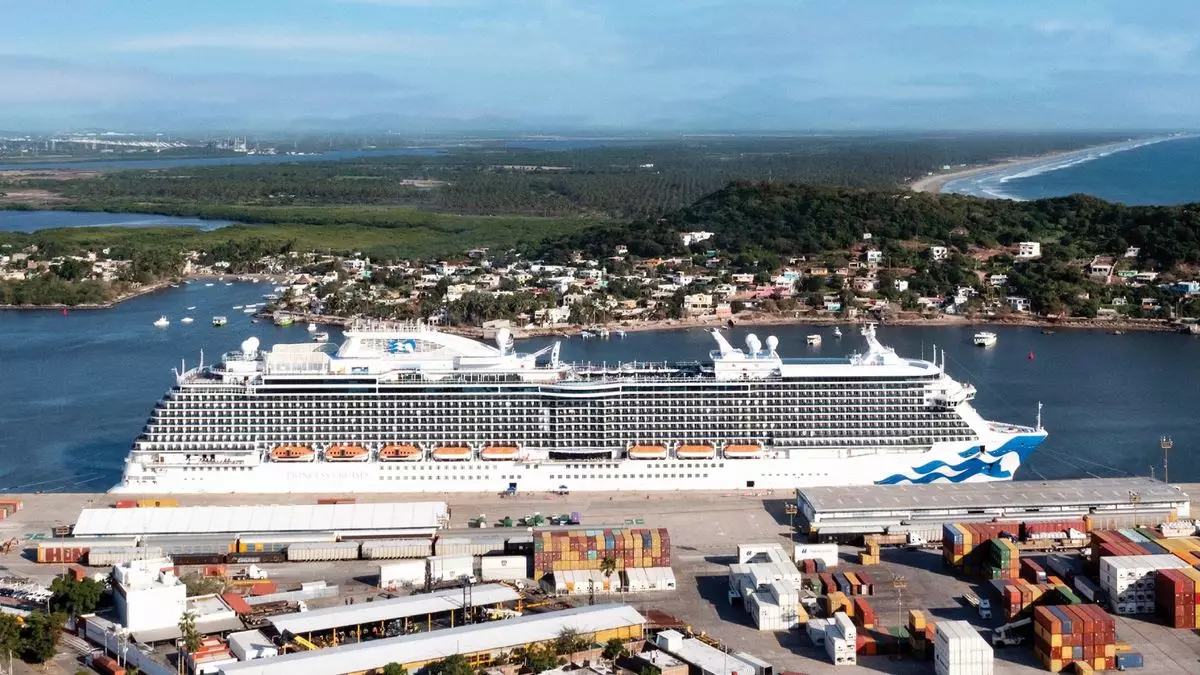In a move that has stirred significant discontent within the cruise industry, Mexico announced a proposed tax of $42 for each cruise passenger entering the country. Initially set for implementation on January 1, this tax was postponed to July 1 following strong opposition from cruise operators. The intention behind this tax has been framed as a mechanism for equitable treatment of all travelers. However, industry leaders argue that it could have far-reaching consequences for Mexico’s buoyant tourism sector.
During Carnival Corp.’s fourth-quarter earnings call, CEO Josh Weinstein openly criticized the implementation of this tax, emphasizing that the cruise industry was not adequately consulted prior to its proposal. Weinstein’s remarks highlight an underlying tension between the government’s intentions and the industry’s operational exigencies. He suggested that the cruise industry wields significant influence over travel itineraries, indicating that alterations could easily be made to avoid Mexican ports altogether. Such a shift could threaten Mexico’s tourism revenue, which heavily relies on cruise ship visits.
The Mexican government defends the tax as a means of achieving parity between all visitors to the nation, given that air travelers have long been subject to similar fees. However, this stance appears to overlook the distinct dynamics of the cruise industry. Cruise passengers generally spend more time on ships and less time in port compared to those arriving by air, a factor that could diminish their overall economic contribution to local economies in Mexico. This difference, coupled with the detrimental potential of the tax, poses a challenge to the government’s understanding of the cruise travel segment.
Carnival Corp. remains optimistic about ongoing discussions with the Mexican government. Weinstein reiterated the importance of engaging in constructive dialogue to communicate the substantial benefits cruise lines bring to Mexico’s economy, such as job creation and the influx of tourist spending. The cruise industry asserts that it contributes significantly to local economies through port fees, excursions, and other expenditures made by passengers. However, during these discussions, it is crucial that the government fully comprehend the implications of the tax—not just in terms of immediate revenue but also considering the long-term effects on tourism.
As the new deadline approaches, the spotlight remains on whether the Mexican government will reevaluate its stance on the cruise passenger tax. The discussions between Carnival Corp. and government representatives will likely set the tone for future relations and determine the trajectory of cruise tourism in Mexico. The balance struck during these negotiations will be crucial in preserving Mexico’s status as a prime cruise destination, ensuring that the benefits of tourism continue to outweigh the costs imposed by such taxes. The outcome could serve as a bellwether for similar tourism policies worldwide, illustrating the delicate interdependence between government policy and industry viability.
As the dialogue continues, stakeholders from both sides should remain vigilant about understanding the broader repercussions of the proposed tax, ensuring a mutually beneficial resolution that sustains Mexico’s rich tourism landscape.


Leave a Reply